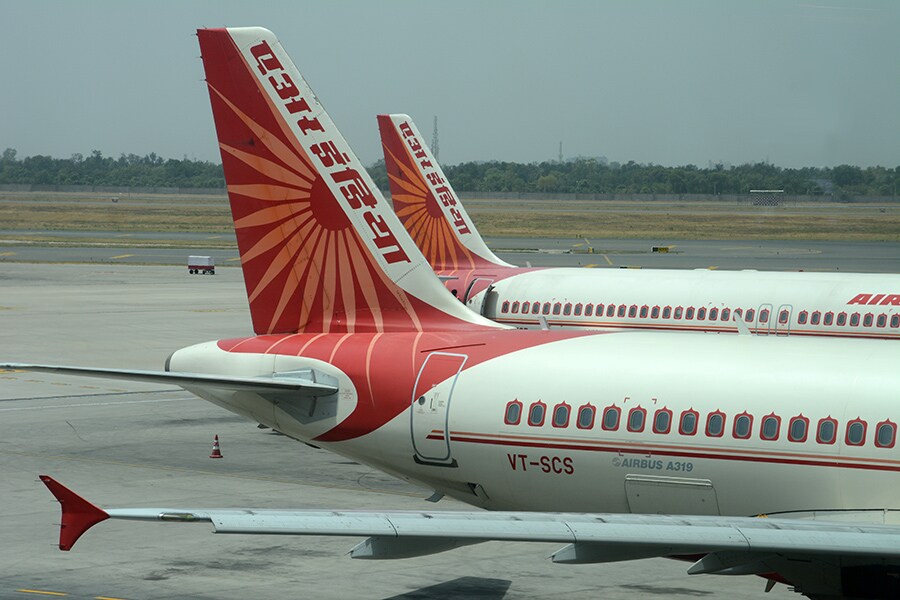Govt says IndiGo has expressed "unsolicited interest" in Air India
Analysts said finding a suitable investor for the airline would require the government to focus on two keys areas: Debt and union issues


 Image: Shutterstock
Image: Shutterstock
A day after the Union Cabinet gave its in-principle approval for the disinvestment of India’s debt-ridden flag carrier Air India (AI), IndiGo, the country’s biggest airline, is said to have expressed interest in AI. IndiGo has a 40 percent share of India’s domestic air passenger traffic, which in 2016 peaked to 100 million.
Senior officers of the ministry of civil aviation told the media in New Delhi on Thursday that IndiGo had expressed “unsolicited interest” in AI. They added that some international airlines, without naming them, had also expressed interest. Qatar Airways is the only known international airline that in the past spoken about wanting to start domestic operations in India.
IndiGo, however, declined to comment on the minister’s statement stating that it was in a silent period in the run-up to announcing its April to June first quarter earnings for fiscal 2018. Last week, there were source-based media reports that the Tata Group — the original promoters of Air India — had expressed interest in buying back the airline.
Given that AI has a debt overhang in excess of Rs 52,000 crore and is unprofitable, finding a suitable investor is not going to be easy for the government. Aviation analysts are of the opinion that finding a willing investor for AI would depend on how the government deals with airline’s debt and people (union) issues.
“Sustainable debt or debt that the business can reasonably carry is what will make sense to somebody (airline/investor) coming in,” said Manish Agrawal, leader capital projects and infrastructure, PwC. That means the government will have to write-off a larger portion of the debt in order to make the airline attractive for investors. With regards to the unions, he said, “There needs to be a fair amount of certainty and clarity of commitments to the new investor in order to make the investment less risky.” The Air India Employees’ Union has already opposed the government’s move to privatise the airline.
That said, there are several positives for airlines and investors looking to buy AI. “The airline has significant intrinsic value. Its fleet, brand, market share, airport slots and institutional knowledge has untapped potential,” said Amber Dubey, partner and India head of aerospace and defence at global consultancy firm KPMG. “It's a one-time deal wherein the winner gets all and the others may take years to catch up.”
Given that the domestic air passenger traffic in India is forecast to grow at a 13 percent CAGR from FY16 to FY26, according to Morgan Stanley Investment Management, Agrawal said, “I would expect that there would be interest from somebody willing to buy a company which is already up and running, instead of starting something from scratch.”
Added Dubey, “We have always maintained that if the Air India deal is structured well, it will attract at least two to three serious bidders. It’s good to see that some leading Indian carriers have shown interest within 24 hours of the cabinet's decision to privatise Air India.”
First Published: Jun 29, 2017, 15:00
Subscribe Now